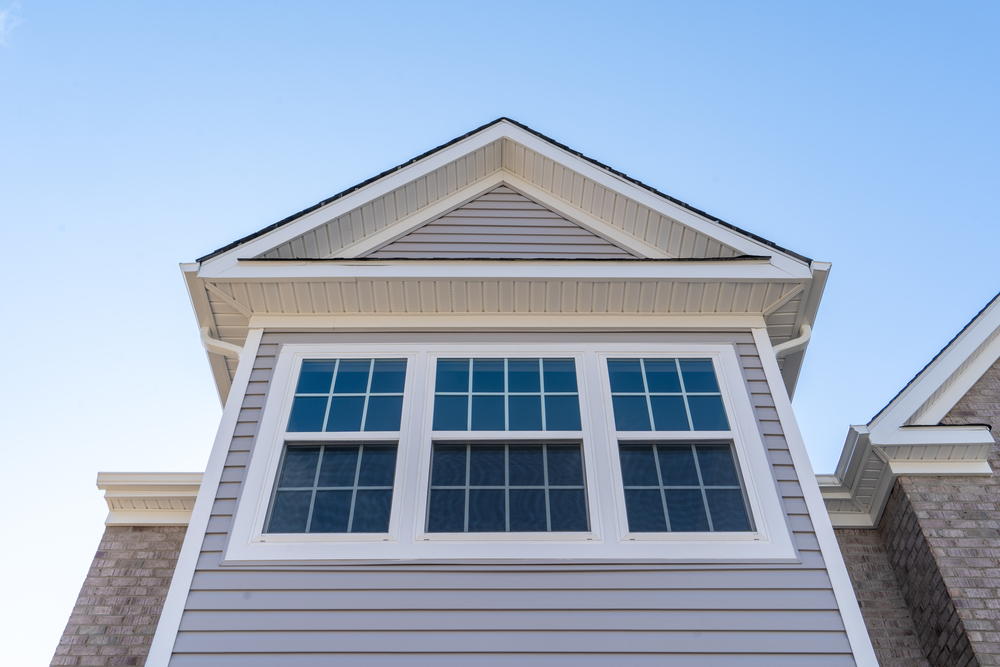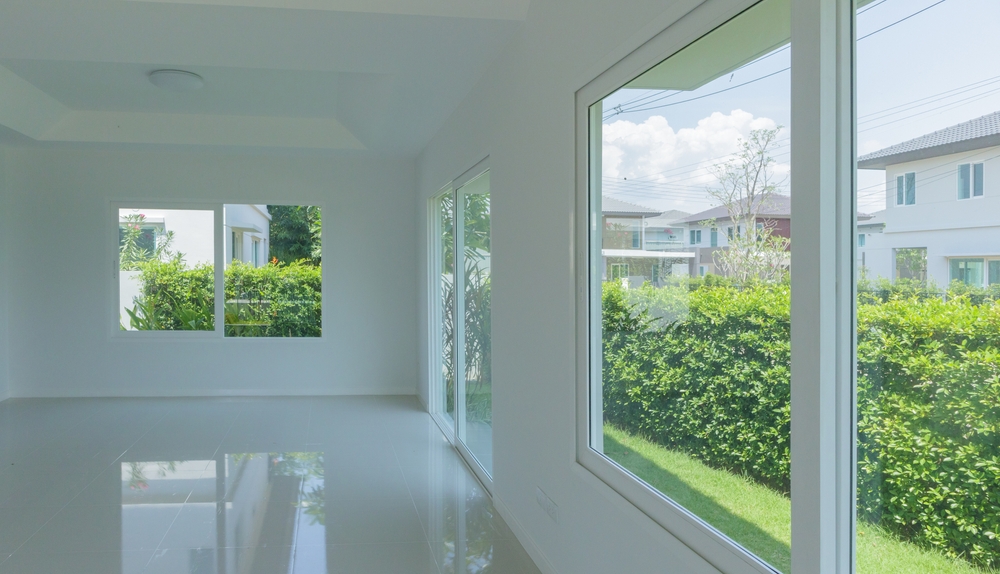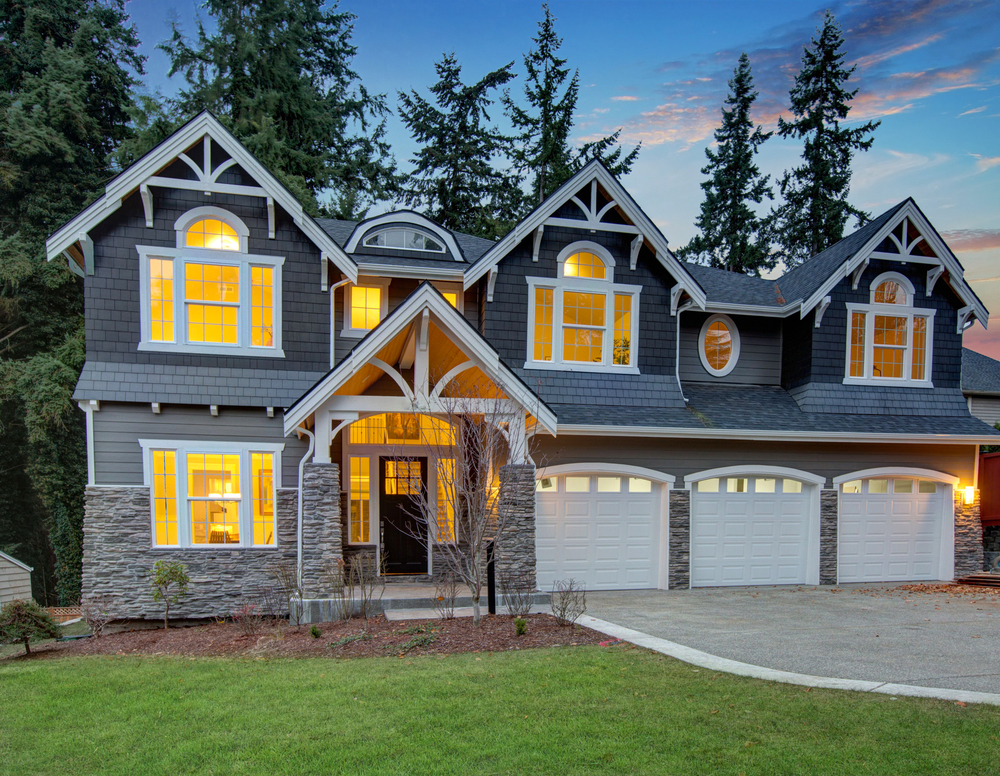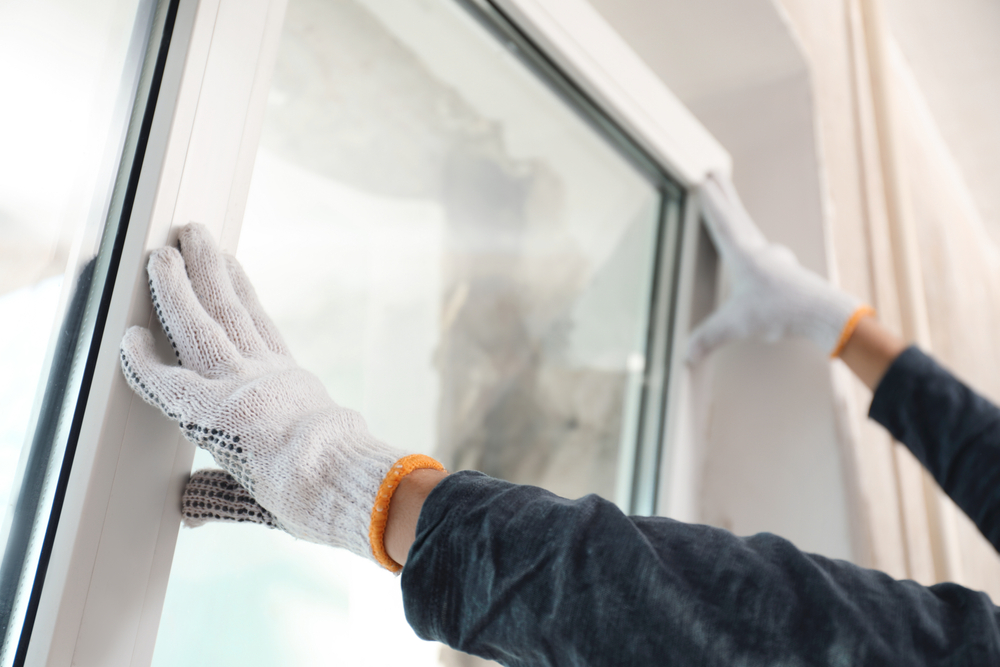Request Quote
Home | Our Blog | Vinyl vs. Fiberglass Windows: A Comparison of Pros and Cons
Reviewed by Tomas Kalkys. President.
Qualifications: More than 20 years of experience in residential and commercial exterior remodeling.
Founding farther of Legacy Service.
Written by LegacyUSA Team
posted on Oct 10, 2022
Get Estimates From Roofing Pros

Vinyl or fiberglass? This is the question you may be asking yourself if you’re installing or replacing your windows. These materials are two of the most popular among American homeowners. However, one may work better for your tastes and preferences than the other.
In this article, we’ll discuss the difference between vinyl and fiberglass windows, which will help you determine which material you’d like for your house. If you’d prefer to schedule a free consultation with an expert, contact our team at Legacy Service by calling us at 215-798-9790 or visiting https://legacyusa.com/contact/. We also provide installation and replacement services for roofing, siding, doors, and more.
Vinyl is short for polyvinyl chloride (PVC), a kind of plastic. It’s tough to go wrong with this material, which is why it’s one of the most popular ones on the market today. It’s strong, durable, easy to maintain, and remains affordable regardless of budget.
If you’re considering vinyl vs. fiberglass windows, it’s good to know the pros and cons of each material. In this section, we’ll review the advantages of vinyl. They include:
If you’re interested in installing vinyl windows, contact our team to get started. Continue reading if you’d like to learn more.
Before you choose this material, it’s good to know about any cons you may deal with over the years. Here are the disadvantages of this material:
Fiberglass has long been used to create strong, lightweight materials for surfboards, skis, and canoes. Around 2000 is when fiberglass and fiberglass-composite windows began to gain popularity. This material is created by activating polyester resins by a catalyst, and then pulled through a heated die. The final product is called a lineal and can be shaped.
If you’re wondering which to choose between fiberglass vs. vinyl windows, it’s time to learn more about the pros and cons of each material. The advantages include:
If you’re interested in fitting your home with these windows, please feel free to reach out to us at any time.
It’s also a good idea to know the cons of choosing fiberglass before you make any decisions. The disadvantages of this material may include:

When comparing vinyl windows vs. fiberglass, you want to take appearance into consideration. The good news is that both materials are quite attractive. And while they may look similar from a distance, fiberglass actually offers more variety in terms of options. Now, let’s discuss the differences in appearance between these two materials.
While vinyl windows are an attractive option, it’s important to know that their appearance is restricted to the colors and finishes on the market since the material cannot be painted. Another notable quality is that their window frames are a little bit more standard-looking than fiberglass, and they have a visible join line. Vinyl window frames are also usually thicker because they’re not as strong and need more material for the frames.
Fiberglass frames tend to be stronger than vinyl, so they can be thinner, which leaves more of the glass exposed. More glass exposure means more natural light will be able to filter into your home. This material also provides a broader variety of appearance options since it can be painted, and it can also be textured to look like wood.
Choose vinyl if you’re on a lower budget and would like a standard-looking material for your windows. Choose fiberglass for stronger frames that will allow more light inside and can be painted. Get in touch with a trustworthy contractor if you’re interested in scheduling a consultation.
Whether you’re considering fiberglass or vinyl windows, take the installation process into consideration before making any decisions. For example, if you’re a handy DIYer looking to complete the installation yourself, it’s recommended that you choose vinyl. Fiberglass has a more complex installation process and should be done by a team of professionals.
When it comes to installation, vinyl windows have an advantage because they’re easier to install. Although it’s always best to go with professional installation, handy homeowners who are competent with a utility knife, hammer, and power drill may be able to source and install the windows themselves if they’re interested. Vinyl is flexible, so it’s more forgiving if there are any discrepancies in measurement. You may also be able to find pre-made vinyl windows in standard sizes at your local home improvement center.
Fiberglass is more rigid, and therefore, more difficult to install. It requires close tolerances and must be installed with great precision. For this reason, it’s recommended that you hire professionals who will get the job done for you. These windows also must be ordered by a manufacturer, some of which may be reluctant to sell directly to a homeowner.
If you’re seeking a simpler installation process or considering DIY, then vinyl is your recommended window material. If you’re interested in fiberglass and looking to hire a team of professionals, then it may be the choice for you!

Price makes a difference in choosing which window material to install when you’re comparing fiberglass versus vinyl windows. For example, vinyl windows usually have a lower price range, so homeowners on a budget choose vinyl more often. Let’s take a look at the differences between fiberglass vs. vinyl windows cost:
The cost of your vinyl windows may differ depending on the area you live, the size and shape of your house, and other factors, but they’re typically more affordable than other windows. In fact, vinyl can be up to 30% less expensive than its fiberglass counterpart. If you care more about affordability and less about customization, then you may want to choose vinyl.
Fiberglass is known to be more expensive than its vinyl counterpart, but it’s undoubtedly worth it according to many homeowners. This material will not only be more durable and long-lasting, but you’ll also be able to paint and customize it to your liking. It is also more difficult to install, so professional installation is highly recommended.
It’s no secret that vinyl is less expensive than other types of windows. However, you might still want to choose fiberglass if you’re seeking durable windows that could last up to 50 years or more! Consult a professional to determine which would work best with your home and budget.
Both vinyl and fiberglass are known as durable and long-lasting materials. However, fiberglass has an edge over vinyl when it comes to strength and durability. If you don’t mind paying more for windows that may last up to 50 years, then fiberglass may be the choice for you. Continue reading to learn more about the strength and durability of these materials.
Vinyl is designed to outlast wood, lasting up to 30 years with the proper installation and care. It also won’t rot due to moisture or insect damage. However, vinyl does expand and contract with fluctuating temperatures, which can cause the seal between the glass pane and window frame to eventually break.
Fiberglass windows are stronger and more long-lasting than both vinyl and wood. In fact, they can grace your home for up to 50 years or more with the proper installation and care. This is due to the way the material is manufactured. It’s made by using glass and insulation pieces and infusing them with resin.
Both materials are designed to outlast wood, but fiberglass has the advantage over vinyl when it comes to strength and durability. Fiberglass may be more expensive than vinyl, but many homeowners consider the price to be well worth it, considering how long the material lasts.
Although vinyl and fiberglass are both fairly good insulators, vinyl windows are typically not as energy efficient as most fiberglass options. However, vinyl still does a good job of controlling temperature loss or gain through your windows. Keep in mind, though, that fiberglass is the way to go if you’re concerned with keeping your house as energy efficient as possible.
Fiberglass has the upper hand when it comes to energy efficiency. In fact, it was created in the 1920s to specifically use as insulation, and it’s still used for that by many people today. On average, these windows are about 15 percent more energy efficient than vinyl ones. Fiberglass is also effective at insulating sound, but we’ll cover more on that later.
Although both materials can be described as energy efficient, fiberglass is by far the better option. The added glass fibers ensure better insulation, helping you save energy, as well as money on cooling and heating bills, over the years.
Is your house by a busy roadway? Do your neighbors’ dogs bark late at night or early in the morning? If you reside in a noisy area and have trouble keeping your home quiet throughout the day (and night), then fiberglass windows may be your best choice. Their insulating properties prove useful for keeping excessive noise out.
Fiberglass windows are the cream of the crop regarding noise insulation, but vinyl windows can still do a nice job. Vinyl window frames are constructed with hollow cavities, but they can be filled with insulation at the homeowner’s wishes.
Fiberglass windows are known as one of the best noise insulators available on the market today. The same glass fibers that make them energy efficient are also useful in keeping out unwanted sounds. Since vinyl doesn’t have the same insulating properties, noise may travel through its frames more easily.
If you’re interested in keeping outdoor noise outside where it belongs, then you may want to select fiberglass windows for your home. On the other hand, if you don’t mind noise or already live in a fairly quiet area, and you’re looking for a more affordable window material, then vinyl could be the better material for you.

‘Are fiberglass windows better than vinyl?’ is one of the questions that we’re asked frequently by homeowners. The answer is that it depends on what you’re looking for. However, both materials are on equal ground when it comes to maintenance that is required over the years since both types are practically maintenance-free!
Once vinyl windows are installed, you won’t have to worry about much maintenance throughout their lifespan. Temperature swings can cause the seal to break, which will need to be caulked. And they’ll occasionally need to be washed and scrubbed to prevent the build-up of dust, dirt, and moss (like all windows). A sturdy brush or sponge and warm water will do the trick.
Like vinyl, fiberglass windows do not require much maintenance. They will simply need to be washed and scrubbed from time to time to prevent the build-up of dirt, dust, and moss. The only difference is that fiberglass windows may need to be repainted when they eventually peel or fade.
If you’re concerned with maintenance, both vinyl and fiberglass windows are excellent choices. Unlike wood, these materials are virtually maintenance-free, and both are made to last for decades to come.
So, which of the two materials is considered more environmentally friendly?
Fiberglass is considered more environmentally friendly between the two. We’ll cover the reasons why in the sections below.
Vinyl doesn’t quite measure up to the standards of fiberglass in regards to environmental concerns. It’s not as energy-efficient as its counterpart, and the material itself is not easily recyclable.
Fiberglass is considered better for the environment for a variety of reasons. First, it’s more energy-efficient than vinyl, which helps reduce energy consumption in your home and lower your energy bills. Second, although it’s not exactly easy to recycle, most of it is made from recycled glass, meaning less need for new glass production and less glass in landfills.
If you’re seeking a window material that’s better for the environment, then fiberglass is the way to go. It’s a better insulator than vinyl, and it’s less likely to develop an air gap over time.
Regarding resale value, fiberglass tends to have the upper hand. However, it’s important to note that windows are generally not a large factor in determining the price of a home. Although if the buyer were to consider windows, fiberglass windows would typically command a higher resale price.
Although fiberglass windows tend to have a higher resale value than vinyl windows, vinyl is still a worthy investment. It usually won’t matter what type of windows you have as long as they’re in reasonably good condition. In fact, windows that aren’t in visibly bad shape won’t have an effect on swaying home buyers one way or another.
Although windows do not have much of an effect on a home’s resale value, fiberglass can usually reap higher values than vinyl. This higher value is due to it being customizable, durable, and low maintenance.
So, which is better: fiberglass or vinyl windows?
With resale value, it doesn’t make much of a difference as long as your windows are kept in relatively good condition. If we had to choose though, it seems that fiberglass offers a slightly higher resale value.

If you’re considering vinyl or fiberglass windows and you have questions, then continue reading! Here are answers to some of the questions that we’re most frequently asked about this topic:
Although both materials are strong and durable, fiberglass is considered to be the stronger of the two. While vinyl windows can last up to 30 years, fiberglass windows can grace your home for up to 50 years or more after installation!
Each of these materials can be an excellent choice for any home. The decision comes down to which qualities you’re looking for. For example, homeowners looking for more affordable windows and don’t care about customization may want vinyl. And homeowners who are seeking customizable, long-lasting windows that may have a higher price tag are encouraged to select fiberglass.
Fiberglass windows offer many advantages, but as far as disadvantages go, they include:
In most cases, fiberglass windows are expected to last longer than vinyl windows. Fiberglass has an average lifespan of up to 50 years or more, while vinyl has an average lifespan of up to 30 years or more.
Yes, fiberglass windows may cost more initially, but they’re considered to be worth it long-term. These durable windows can last up to 50 years, remain customizable throughout their lifespan, and even help your home conserve energy.
No, vinyl windows do not decrease home value as long as they’re kept in relatively good condition. Only windows that are in visibly bad shape may decrease the value of your house. Otherwise, they probably won’t sway homeowners one way or the other.

If you’re interested in window installation or replacement, contact our team to get started. We also replace doors, siding, and roofing. Give us a call at 215-798-9790 or contact us here: https://legacyusa.com/contact/
Posted on Oct 10, 2022 in Roof
Read our news
HOW LONG SHOULD A ROOF LAST? ELEMENTS
A lot of elements play a role in maintaining the integrity of the roof, but as a homeowner, the most important components to pay attention to are the underlayment, ventilation, and material.
DIFFERENT TYPES - DIFFERENT LIVES
Choosing the best roofing material for your home is the first important step in ensuring that you have the highest quality roof possible.
METAL ROOF VS ASPHALT SHINGLE ROOFING
Two of the most popular roofing materials on the market are metal and asphalt, and both offer different pros and cons to a customer.
Pros and cons of Asphalt Shingle Roofing
Replacing a roof is an expensive decision, and cannot only come down to cost.


